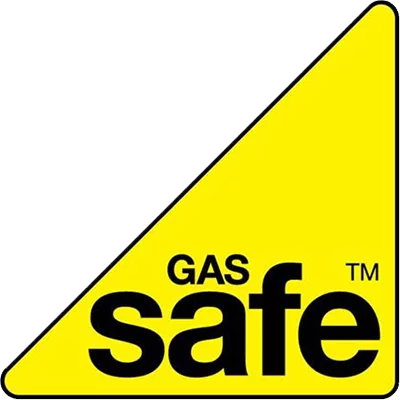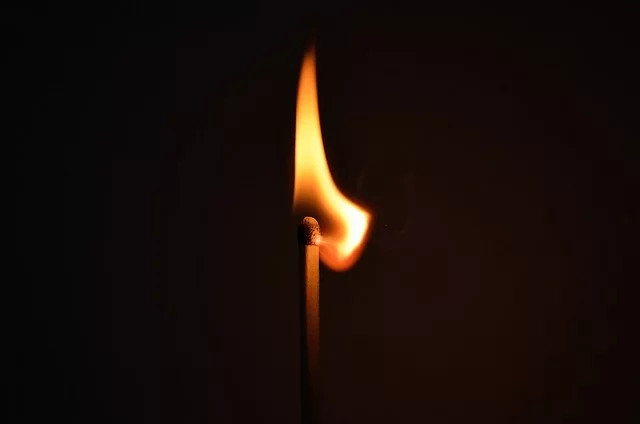Is your boiler not firing up? This can be a frustrating and worrying experience, especially during the colder months when you rely on your boiler to keep your home warm and comfortable. There are several reasons why your boiler may not be firing up, and it’s important to identify the cause so that you can take the necessary steps to fix the issue.
One possible reason for your boiler not firing up is a lack of fuel or a faulty fuel supply. This could be due to an empty fuel tank, a problem with the fuel line, or a malfunctioning fuel pump. Another possible cause could be an issue with the ignition system, such as a faulty pilot light or a damaged ignition switch. In some cases, the problem may be with the thermostat, which could be malfunctioning or not set correctly. Whatever the cause, it’s important to address the issue as soon as possible to ensure that your boiler is functioning properly and to prevent further damage.
Understanding Your Boiler
If your boiler is not firing up, it’s important to understand how it works and what components are involved. This knowledge can help you troubleshoot the issue and potentially avoid costly repairs.
Components and Functionality
A boiler is a central heating system that uses water to generate heat. The heated water is then circulated throughout your home via pipes and radiators. The main components of a boiler include:
Burner: This is where natural gas or oil is burned to produce heat.
Heat exchanger: This transfers heat from the burner to the water.
Pump: This circulates the water throughout the system.
Thermostat: This controls the temperature of the water and turns the boiler on and off as needed.
Pressure gauge: This indicates the pressure of the water in the system.
Understanding how these components work together can help you diagnose issues with your boiler. For example, if your pressure gauge is showing low pressure, it could indicate a problem with the pump or a leak in the system.
Types of Boilers
There are several types of boilers available, each with their own advantages and disadvantages. The most common types include:
Combi boilers: These provide both heating and hot water on demand, making them a popular choice for smaller homes.
System boilers: These require a separate hot water tank, but are more efficient than combi boilers and can provide hot water to multiple taps simultaneously.
Regular boilers: These are the traditional boilers that require both a hot water tank and a cold water tank. They are best suited for larger homes with higher hot water demands.
When choosing a boiler, it’s important to consider your home’s size and hot water needs. Additionally, it’s important to have your boiler serviced regularly to ensure it is functioning properly and safely.
By understanding your boiler and its components, you can become a more knowledgeable homeowner and potentially avoid costly repairs.
Common Issues and Diagnostics
If your boiler is not firing up, there are several common issues that you can diagnose before calling a professional. Here are some of the most common issues and how you can diagnose them.
Error Codes and What They Mean
Many modern boilers come with error codes that can help you diagnose the problem. Check your boiler’s manual to find out what the error codes mean and how to fix them. If you’re not sure what the error code means, contact a professional.
Assessing Boiler Pressure
Low boiler pressure is a common issue that can cause your boiler to not fire up. Check the pressure gauge on your boiler to make sure it’s within the recommended range. If it’s too low, you may need to top up the pressure using the filling loop. If you’re not comfortable doing this yourself, contact a professional.
Checking the Pilot Light and Ignition System
If your boiler has a pilot light, check to make sure it’s lit. If it’s not, you may need to relight it. If your boiler has an electronic ignition system, check to make sure it’s working properly. If it’s not, you may need to replace the ignition system.
Inspecting the Thermostat
Check the thermostat settings to make sure they’re set correctly. If the thermostat is set too low, your boiler may not fire up. If the thermostat is working properly but the boiler still won’t fire up, you may need to replace the thermostat.
Remember, if you’re not comfortable diagnosing and fixing the problem yourself, contact a professional. Trying to fix the problem yourself could cause further damage to your boiler and put your safety at risk.
Troubleshooting Steps
If your boiler is not firing up, there are a few troubleshooting steps you can take before calling a professional. Here are some things to try:
Resetting Your Boiler
One of the first things you can try is resetting your boiler. To do this, locate the reset button on your boiler and press it. If your boiler fires up after resetting, then the problem may have been a temporary glitch. However, if your boiler still does not fire up, move on to the next step.
Bleeding Radiators
Sometimes, your boiler may not fire up because there is air trapped in your radiators. Bleeding your radiators can help release the trapped air and improve the efficiency of your heating system. To bleed your radiators, follow these steps:
Turn off your heating system and allow your radiators to cool down.
Locate the bleed valve on your radiator. This is usually located at the top of your radiator on one of the ends.
Place a cloth or towel underneath the bleed valve to catch any water that may come out.
Use a radiator key or a flathead screwdriver to turn the bleed valve counterclockwise. You should hear a hissing sound as the air is released.
Once water starts to come out of the valve, tighten the valve back up.
After bleeding your radiators, try resetting your boiler again to see if it fires up.
Thawing a Frozen Condensate Pipe
If your boiler is a condensing boiler, it may not fire up because the condensate pipe is frozen. This can happen during cold weather when the water in the pipe freezes. To thaw a frozen condensate pipe, follow these steps:
Locate the condensate pipe. This is usually a white plastic pipe that comes out of the bottom of your boiler and goes outside.
Pour hot water over the frozen section of the pipe. You can use a kettle or a hot water bottle to do this.
Wait for the ice to melt and the water to start flowing again.
Once the water is flowing freely, try resetting your boiler again to see if it fires up.
By following these troubleshooting steps, you may be able to fix the problem with your boiler not firing up. If none of these steps work, it may be time to call a professional to diagnose and fix the issue.
When to Call a Professional
If you have tried all the basic troubleshooting steps and your boiler still won’t fire up, it may be time to call in a professional. Here are some situations where it’s best to leave it to the experts:
Recognising Complex Issues
If you’re not familiar with the inner workings of your boiler, it can be difficult to diagnose complex issues. For example, if your boiler is making strange noises or emitting unusual smells, it could be a sign of a serious problem. A professional gas safe engineer will have the knowledge and experience to identify the issue and make the necessary repairs.
Gas Safety and Legal Requirements
It’s important to remember that working with gas can be dangerous. If you’re not a qualified gas safe registered engineer, you could be putting yourself and your family at risk. In addition, there are legal requirements that must be met when working with gas boilers. By hiring a professional, you can ensure that your boiler is being serviced or repaired safely and legally.
When choosing a professional to work on your boiler, make sure they are properly qualified and registered with Gas Safe. This will ensure that they have the necessary skills and knowledge to work with gas boilers safely and effectively.
Remember, faulty boilers can release harmful gases such as carbon monoxide, which can be deadly. If you suspect that your boiler is faulty, don’t take any chances. Call a professional right away to ensure that your boiler is functioning safely and efficiently.
Preventative Maintenance
To ensure that your boiler continues to work efficiently, it is important to carry out preventative maintenance regularly. This will help to prevent any problems from occurring and will extend the lifespan of your boiler. Here are some steps you can take to keep your boiler in good condition.
Regular Boiler Service
One of the most important preventative maintenance tasks is to have your boiler serviced regularly by a qualified engineer. During a service, the engineer will check all of the components of your boiler to ensure that they are working correctly. They will also clean the boiler and make any necessary repairs. Regular servicing can help to prevent breakdowns and can also improve the efficiency of your boiler, which can save you money on your energy bills.
Addressing System Leaks and Blockages
Another important preventative maintenance task is to address any leaks or blockages in your central heating system. Leaks can cause corrosion and can also lead to a loss of pressure in your system, which can prevent your boiler from firing up. Blockages can also prevent your boiler from working correctly, as they can restrict the flow of water through your system. If you notice any leaks or blockages, it is important to have them addressed as soon as possible to prevent any further damage to your system.
To summarise, carrying out regular preventative maintenance on your boiler is essential to ensure that it continues to work efficiently and to prevent breakdowns. Regular servicing by a qualified engineer and addressing any leaks or blockages in your system are two key tasks that should be carried out on a regular basis to keep your boiler in good condition.
Upgrading Your Boiler
If your boiler is not firing up, you may be considering upgrading to a new one. Here are some things to consider before making the decision.
Deciding to Replace or Repair
When your boiler is not firing up, it may be tempting to immediately replace it with a new one. However, it is important to first consider whether repair is a viable option. A professional technician can assess the extent of the damage and determine if repair is possible.
If repair is not an option, then it may be time to replace your boiler. Upgrading your boiler can provide several benefits, including improved energy efficiency, better heating performance, and increased reliability.
Getting Quotes for New Boilers
When looking for a new boiler, it is important to get quotes from multiple providers. This will allow you to compare prices and find the best deal for your budget.
When getting quotes, be sure to ask about the manufacturer’s warranty, installation costs, and any additional fees. It is also a good idea to read reviews from other customers to ensure that you are getting a quality product.
When choosing a new boiler, it is important to consider factors such as the size of your home, your heating needs, and the gas pressure available in your area. A professional technician can help you determine the best boiler for your specific needs.
Overall, upgrading your boiler can provide several benefits and improve the comfort of your home. Be sure to carefully consider your options and get quotes from multiple providers before making a decision.
Safety and Regulations
Understanding CO2 Emissions
When dealing with boilers, it’s important to understand the potential risks associated with carbon monoxide (CO) emissions. CO is a poisonous gas that can be produced when a boiler is not working correctly. It’s important to note that CO is different from CO2 (carbon dioxide), which is a harmless gas produced during the combustion process.
CO2 emissions, on the other hand, are a concern from an environmental standpoint. While CO2 is not harmful to humans, it is a greenhouse gas that contributes to climate change. When a boiler is not firing up correctly, it can produce excessive CO2 emissions, which can have a negative impact on the environment.
Compliance with Gas Safety Regulations
To ensure the safety of your home and those around you, it’s important to comply with gas safety regulations. Gas safety regulations require that all gas appliances, including boilers, are installed and maintained by a Gas Safe registered engineer.
Gas Safe registered engineers are trained and qualified to work with gas appliances and are required to follow strict safety guidelines when installing and maintaining boilers. They will also carry out safety checks to ensure that your boiler is working correctly and is not producing harmful emissions such as CO.
It’s important to note that gas safety regulations also require that gas meters, regulators, and the gas supply itself are all installed and maintained correctly to ensure the safe operation of your boiler. If you suspect that there is an issue with your gas supply, it’s important to contact your gas supplier immediately.
In summary, ensuring the safety and compliance of your boiler is crucial for both your own safety and the environment. By working with a Gas Safe registered engineer and following gas safety regulations, you can ensure that your boiler is working correctly and is not producing harmful emissions.
Frequently Asked Questions
If your boiler’s pilot light is out, it won’t be able to ignite and heat your home. Here are the steps you should take:
Check that the gas supply is turned on and that there are no leaks.
Follow the manufacturer’s instructions to relight the pilot light.
If the pilot light won’t stay lit, it may be a problem with the thermocouple, which can be replaced by a qualified engineer.
If your Worcester boiler isn’t starting, there are a few things you can check before calling a professional:
Check that the thermostat is set correctly and that the batteries are working.
Make sure the boiler is receiving power and the fuse hasn’t blown.
Check the pressure gauge to ensure it’s at the correct level.
If none of these steps work, it may be a more serious issue that requires a professional engineer.
If your boiler isn’t responding to the thermostat settings, try these steps:
Check the batteries in the thermostat and replace them if necessary.
Ensure the thermostat is correctly set to the desired temperature.
Check that the boiler is receiving power and that the fuse hasn’t blown.
If none of these steps work, it may be a problem with the wiring or the thermostat itself, which will require a professional engineer.
If your gas boiler isn’t turning on, it could be due to a number of reasons, including:
A problem with the gas supply or gas valve.
A broken thermostat or wiring issue.
Low water pressure or a faulty pump.
To resolve this issue, you should:
Check the gas supply and valve to ensure they’re working correctly.
Check the thermostat and wiring for any issues.
Check the water pressure and pump to ensure they’re working correctly.
If none of these steps work, it may be a more serious issue that requires a professional engineer.
Common issues that can prevent an Ideal boiler from igniting include:
A faulty ignition switch or electrode.
A blocked flue or air intake.
Low water pressure or a faulty pump.
To fix these issues, you should:
Check the ignition switch and electrode for any issues.
Clear any blockages in the flue or air intake.
Check the water pressure and pump to ensure they’re working correctly.
If none of these steps work, it may be a more serious issue that requires a professional engineer.
If your Vaillant boiler isn’t igniting, it could be due to:
A problem with the gas supply or gas valve.
A blocked flue or air intake.
A faulty ignition switch or electrode.
To solve these issues, you should:
Check the gas supply and valve to ensure they’re working correctly.
Clear any blockages in the flue or air intake.
Check the ignition switch and electrode for any issues.
If none of these steps work, it may be a more serious issue that requires a professional engineer.


